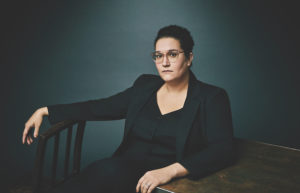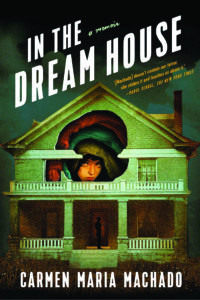In her new book, In the Dream House: A Memoir, Carmen Maria Machado flips the discussion of domestic abuse on its ear. She writes of her own traumatic experience in an abusive lesbian relationship. The politically sensitive issue of same-sex domestic violence is rarely addressed publicly, but in Machado’s hands it serves as the foundation for a substantive, reflective work of art. That shouldn’t come as a surprise: Machado’s previous book, a collection of stories about sexual encounters titled Her Body and Other Parties, was a finalist for the National Book Award and won the Bard Fiction Prize and Lambda Literary Award for Lesbian Fiction.

Machado will give a reading of her work at the Fine Arts Work Center in Provincetown this Saturday. “I have been to Provincetown several times,” she says. “I love it. The beaches are really gorgeous. I live in Philadelphia and go to the seashore a lot, but the light and the shoreline in Provincetown are special. Plus, being around other queer folk is very lovely to me. I am very at home in that way.”
Having grown up in Allentown, Pa., and with an M.F.A. from the Iowa Writers’ Workshop, Machado says she was influenced by the fiction of Ray Bradbury, Shirley Jackson, Angela Carter, Kelly Link, and Helen Oyeyemi, and her short stories have elements of horror, science fiction, surrealism, metafiction, and fantasy. “That’s what I normally do,” Machado says, and, as a memoir, In the Dream House “was a genre switch for me, for sure.” She wrote the book in pieces over two to three years. What motivated her? “I felt like I needed to pass a kidney stone, and I needed to get it out of my own way,” she says.
Machado was aware that putting her private struggles out there might be criticized, however unfairly. “When men write something that is confessional, they are lauded for it, and when women do it, we are called self-indulgent,” she says. “There is a sense of contempt when women write autobiographically. It’s terrible, but that’s the way the world is, and all I can do is point it out when I see it. I have heard people comment on certain elements of a book and I think they wouldn’t have if a man had written it. But honestly, it is par for the course. I don’t take it very seriously.”

In the Dream House was published by Graywolf Press last November, and reactions have run the gamut. “A lot of people have said it’s very moving,” Machado says. “They see themselves in it. That’s sad, but good. The book landed where it needed to go. Some people don’t like it or the representation in the book, or they think it’s irresponsible. I accept it and move on. I have already written my half of the conversation.”
Throughout the book, she makes the point that many LGBTQ activists make, that “we are like everyone else.” If that’s true, it’s not only in good ways. She hopes that the book will increase awareness of domestic abuse in the queer community and help break the silence on the issue. But she doesn’t feel as if she needs to offer a solution to the problem, because she isn’t a politician, advocate, or social worker. “It’s not my job,” Machado says. “I just wrote my book.”
There are many poignant and terrifying moments in the memoir, such as when Machado starts to recognize the violence in the relationship — when her partner tightly clenches her arm. “It was the first time she ever laid her hands on me in a way that wasn’t loving or neutral,” Machado says. “There’s a real significant difference between affection and being touched in a way that is threatening. It is very alarming in the moment. I struggled with the language. What is wrong here? My brain did a double take.”
Even police often don’t know how to deal with domestic abuse within the queer community and dismiss the claims of the victims. “They find it hard to believe women capable of perpetrating violence or men being victims of violence,” Machado says. “Who is capable of violence and who is the victim?”
With that chapter of her life over, Machado is moving forward. “I just finished working on a couple of projects, one of which was a comic book series, The Low, Low Woods for DC Comics.” Is there a novel in her future? “Maybe,” she says. “I don’t know how to write a novel, so we’ll see.”
The Truth Hurts
Due to public health concerns, all open studios, gallery events, and readings at the Fine Arts Work Center have been cancelled through the end of April.



